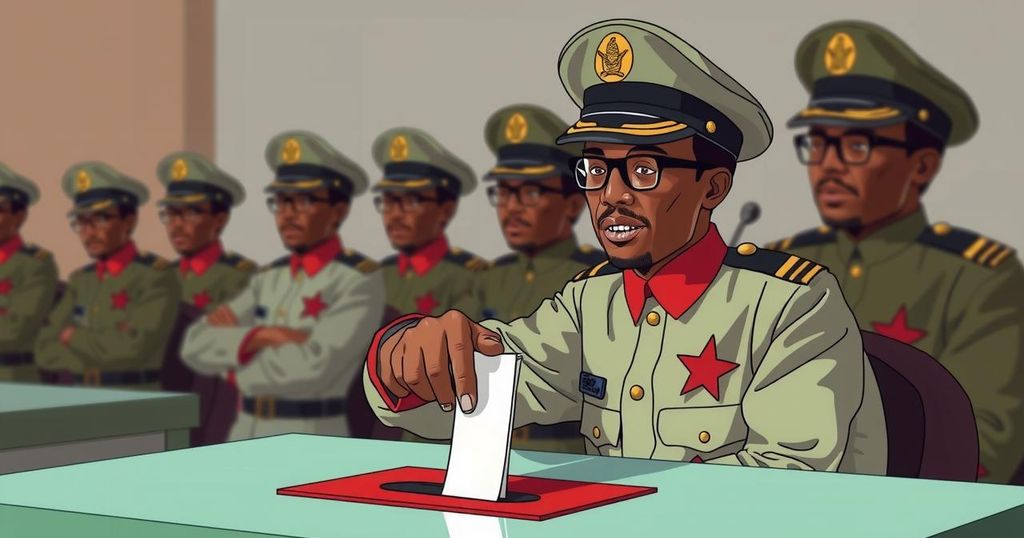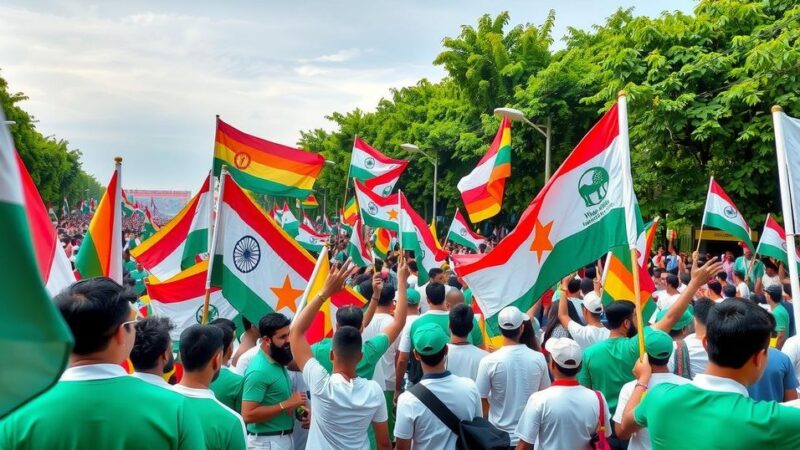Chad’s parliamentary elections on Sunday faced low turnout, overshadowed by a boycott from major opposition parties alleging electoral fraud. This election signals the end of a three-year military transitional rule led by Mahamat Idriss Deby after his father’s lengthy presidency. Observers reported scarce voter participation, notably in the capital, amid concerns regarding the fairness of the process.
On Sunday, Chadians participated in parliamentary and regional elections amid a notably low voter turnout, influenced by a boycott from major opposition parties. This election marks the conclusion of a three-year transitional phase following military rule. Junta leader, Mahamat Idriss Deby, who ascended to power in 2021, characterized this election as a pivotal moment for establishing decentralization in governance. Voter registration included approximately 8 million individuals tasked with choosing 188 legislators for the new National Assembly and additional representatives at the provincial and municipal levels. Observers noted an especially low turnout in the capital, N’Djamena, where polling stations saw scant attendance. The elections represent a significant shift in Chad’s political landscape, which has not experienced a fair electoral process since its independence in 1960. A wide array of opposition parties, most notably the Transformers party, labeled the elections as a “charade,” asserting that they were manipulated to extend Deby’s rule. Criticism was levied against the credibility of both the parliamentary and presidential elections, which were marred by allegations of electoral impropriety. Political analysts underscored the importance of this election as a definitive step toward restoring democracy in Chad, despite the challenges presented by security issues and an absence of substantial opposition representation.
Since gaining independence from France in 1960, Chad has struggled with maintaining a democratic governance structure. The latest elections are intended to end a transitional period initiated after Mahamat Idriss Deby took control following his father’s death. With many viewing the electoral process as flawed, and more than ten opposition parties choosing to boycott, these elections are crucial for Chad’s political future and efforts to combat ongoing security risks from insurgent groups such as Boko Haram. The leadership under Deby has faced criticisms for alleged authoritarian practices, casting doubt on the integrity of the electoral process introduced during this transition.
The parliamentary election in Chad signifies a critical juncture as it aims to transition the country from military rule to a democratic governance structure. However, the low voter turnout and widespread opposition boycott highlight significant concerns over the credibility of the electoral process. With historical challenges of democratic representation and ongoing security threats, the pathway to a stable democracy in Chad remains intricate and fraught with obstacles. Only time will reveal whether this election will genuinely reflect the will of the Chadian people or perpetuate existing governance issues.
Original Source: apnews.com






